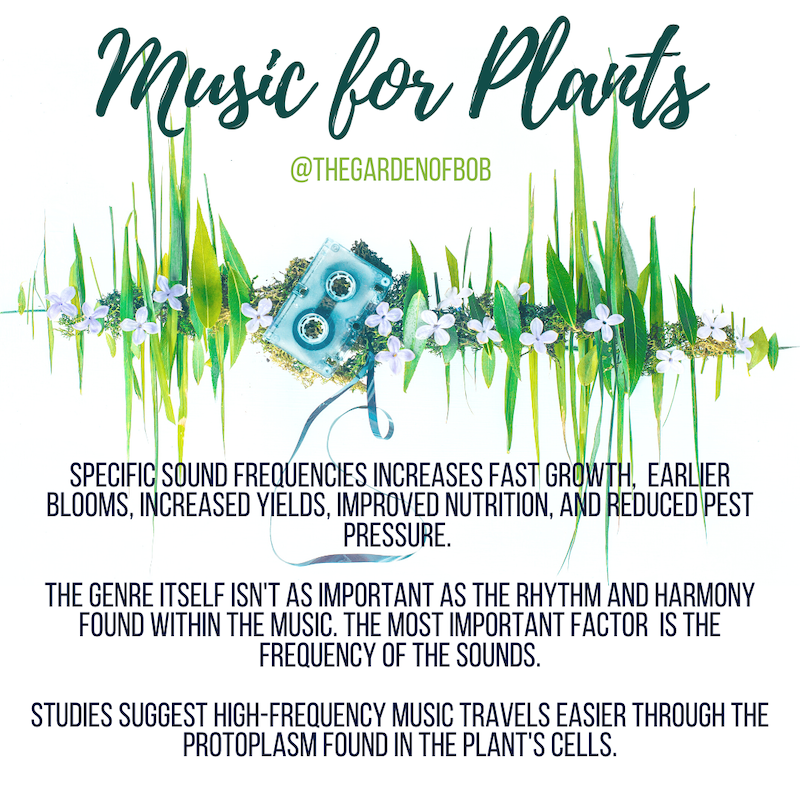
 Loading... Please wait...
Loading... Please wait...Save Money. Grow Your Own!
Fast Plain Box Shipping.
We ship to the US & Canada.
Posted on 1st Nov 2023
In the world of gardening, we often focus on providing plants with the essentials they need, such as water, light, and nutrients. However, recent studies have shown that music can also have a positive impact on plant growth. In this article, we will delve into the benefits of classical, jazz, and deep melodic house music for plant growth, exploring the fascinating relationship between sound and nature.

1. The Power of Sound Vibrations:
Plants
are highly sensitive organisms that respond to various stimuli,
including sound vibrations. Research suggests that different genres of
music can elicit specific responses in plants, influencing their growth
and development. Classical, jazz, and deep melodic house music, with
their distinct rhythms and melodies, have been found to have
particularly positive effects.
2. Enhanced Nutrient Absorption:
One
of the key benefits of music for plant growth is its ability to enhance
nutrient absorption. Studies have shown that playing classical, jazz,
or deep melodic house music near plants can stimulate their root
systems, leading to increased nutrient uptake. This improved absorption
helps plants to thrive and promotes overall health.
3. Stress Reduction:
Just
like humans, plants can experience stress due to various factors such
as environmental changes, pests, or diseases. Music has been found to
alleviate stress in plants, allowing them to better cope with adverse
conditions. Classical, jazz, and deep melodic house music, with their
soothing and harmonious tones, can create a calming environment for
plants, reducing stress levels and promoting resilience.
4. Improved Photosynthesis:
Photosynthesis
is the process by which plants convert light energy into chemical
energy, essential for their growth and survival. Research suggests that
certain genres of music, including classical, jazz, and deep melodic
house music, can enhance photosynthesis rates. The rhythmic patterns and
frequencies of these genres have been found to stimulate chlorophyll
production and optimize the plant's ability to harness sunlight.
5. Increased Biomass and Yield:
The
positive impact of music on plant growth extends beyond photosynthesis.
Studies have shown that exposing plants to classical, jazz, or deep
melodic house music can lead to increased biomass and yield. The
harmonious melodies and rhythmic patterns of these genres promote
healthy growth, resulting in larger and more productive plants.
6. Pest and Disease Resistance:
Plants
that are subjected to stress are more susceptible to pests and
diseases. By reducing stress levels, music can indirectly enhance a
plant's resistance to such threats. Classical, jazz, and deep melodic
house music have been found to strengthen the plant's immune system,
making it more resilient against pests and diseases.
7. Overall Well-being:
Just
as music has a positive impact on human emotions and well-being, it can
also contribute to the overall well-being of plants. Playing classical,
jazz, or deep melodic house music in the garden or greenhouse creates a
pleasant and harmonious atmosphere, benefiting both the plants and the
gardener. It fosters a sense of connection with nature and promotes a
positive gardening experience.
The influence of
music on plant growth is a fascinating area of study. Classical, jazz,
and deep melodic house music have been found to enhance nutrient
absorption, reduce stress, improve photosynthesis, increase biomass and
yield, enhance pest and disease resistance, and contribute to the
overall well-being of plants. Incorporating these genres into your
gardening routine can create a harmonious symphony that nurtures both
your plants and your soul. So, next time you tend to your garden,
consider serenading your plants with the soothing melodies of classical,
jazz, or deep melodic house music.